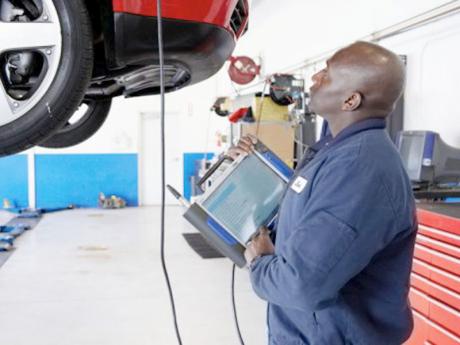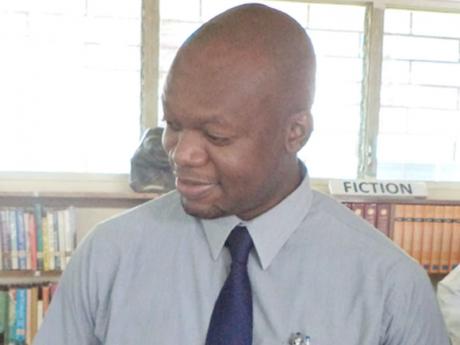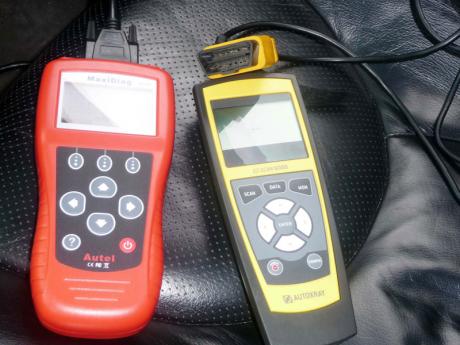Quick fix - Mechanics should make use of diagnostic technology
Sheldon Williams, Gleaner Writer
Head of Jamaican-German Automotive School (JAGAS), Kevin Baxter, believes mechanics and technicians should keep abreast of diagnostic technology.
He told Automotives that while their mechanic skills will remain sound, without being adept at using the diagnostic technology, " ... their capacity to respond will be greatly diminished".
He further explained: "Say something is wrong with the vehicle, and they have to do a check on it - if they do not have the requisite tools and equipment or knowledge, then the time to diagnose will be greatly increased. So it will result in loss of business, because no customer is willing to spend an entire day for their vehicle to be held in a shop for the problem to be found."
"They would much prefer to take it somewhere where, in 10 or 15 minutes, they know exactly what is wrong with the vehicle so the problem can be found and the repairs can be effected," Baxter said.
In a situation of continuously evolving technology, Baxter said mechanics must embrace change. "The technician that retools himself and retrains, he will be the one who survives. Because it won't be the one who has the business the longest in the industry - it's really those persons who are most responsive to the change that will survive," Baxter added.
required training
The Jamaican-German Automotive School (JAGAS) offers the required training. "We do offer courses as it relates to new diagnostic procedures that are emerging. Our instructors are constantly in the field, engaging with the industry so that we can inform our students," Baxter said.
Baxter was quick to admit that the changeover is not cheap and not all resources are readily accessible.
With the diagnostic tool, he said, "prices vary, depending on the quality you purchase. A lot of the manufacturers have designated tools that are only compatible with their make vehicles, so a number of tools aren't readily available on the market outside of the dealership".
Still, it is not an exclusive club, as Baxter said "there are a number of tools that can enable a degree of interface, allowing the normal man on the street who has his business to carry out repairs. If the situation does escalate and needs the intervention of a dealership, then the referral can be made".
Baxter admitted that some persons will not readily accept the change, but urged them to trust the technology and technicians. And, at the end of the day, technology is as good only as the technician using it. For example, Baxter said, "say you bring the vehicle in because your SRS light remains on and they hook up the scan tool and it gives a code. Oftentimes that's what it does. And the technician will then have to check his manual to see what that code is related to".
"If the technician does not interpret that code correctly and changes something that he isn't supposed to, that would mean he has the right tools but cannot effectively manipulate it to generate business."
Vijay Bowla, owner of Bowla's Garage at 90C Red Hills Road, St Andrew, uses diagnostic machines extensively. He noted that when the code is generated, sometimes the Internet can be used to determine what it means. It may not be a straightforward situation, though, as some machines "... give you diagrams and possible causes and they tell you how to check everything that you need to check".
He reiterated that humans are still relevant, even with advanced technology. "The machine can guide you, but you need someone to interpret what the machine is saying," Bowla said.
And while the diagnostics machines are geared towards electronic repairs, many longstanding auto-repair skills are enduring. "You still have a suspension, you still have brake, still have transmission and still have an engine. The mechanics part still remains, so the older mechanics who know how to pull down a front end and set up a front end in no time may not know how to do the electronic part, but most of them keep in contact with persons who have diagnostic machines," Bowla said.



